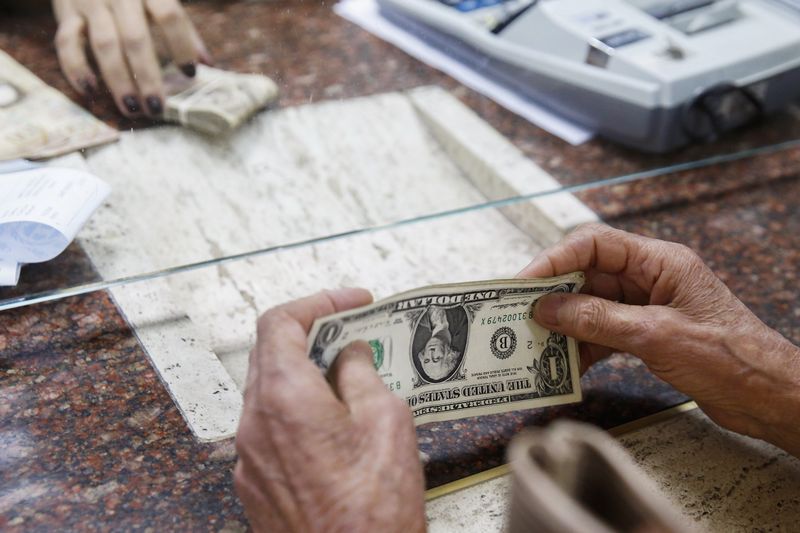Investing.com - The dollar edged lower Tuesday, handing back some of the previous session’s gains but remained near a new four-and-a-half-year high against the yen after Jerome Powell was nominated for a second term as chairman of the Federal Reserve.
At 2:55 AM ET (0755 GMT), the Dollar Index, which tracks the greenback against a basket of six other currencies, traded 0.1% lower at 96.442, just off levels last seen in June 2020.
USD/JPY fell 0.1% to 114.80, having previously climbed to 115.15, its highest since March 2017. GBP/USD edged slightly higher to 1.3399, AUD/USD rose 0.1% to 0.7226 and NZD/USD was down 0.2% to 0.6944, with the Reserve Bank of New Zealand set to hand down its policy decision on Wednesday.
The dollar received a boost from the decision of President Joe Biden to nominate Powell to head the Fed for a second term, instead of Lael Brainard, who was seen as the more dovish of the two and was instead promoted to Fed vice-chair.
Powell’s nomination now goes to the Senate for confirmation, but this move has reinforced market expectations of interest rate hikes in 2022 when the Fed is expected to have finished its asset tapering program.
This resulted in two-year U.S. Treasury yields climbing sharply, reaching 0.64% - their highest level since early March 2020 - before retracing modestly to 0.63%.
Elsewhere, EUR/USD rose 0.1% to 1.1250, rebounding slightly after falling as low as 1.1226, a new 16-month low.
“The (Fed) news cements the key trend in EUR/USD, where the Fed is preparing to normalize monetary policy while the ECB will lag,” said analysts at ING, in a note. “The ECB had more cause to lag anyway since Eurozone inflation was looking set to turn lower far quicker in 2022 than inflation in the US - but renewed lockdowns and pressure on the service sector in Europe now provide the ECB with many more reasons to go slow.”
More evidence of the slowdown in business activity in the Eurozone is likely from the flash November PMI data for the region later in the session.
Despite all that, there was a notable shift in ECB rhetoric early Tuesday, with Isabel Schnabel becoming the first board member to warn that inflation risks are now skewed to the upside.
USD/CNY edged lower to 6.3837, not far removed from its record low even as China’s central bank tries to slow its ascent.
So far, Beijing’s moves to rein in the appreciation have been measured, setting weaker-than-expected reference rates for the yuan for four straight days while urging banks to limit speculation, particularly of a bullish kind.
However, this has had limited impact, raising speculation China’s central bank could cut interest rates in the near future.
Elsewhere in emerging markets, the Turkish lira slumped again as comments from President Recep Tayyip Erdogan pushed it through an important technical level, triggering stop losses. The dollar was up 4.7% at 11.9469, having peaked just short of 12.00 earlier.















